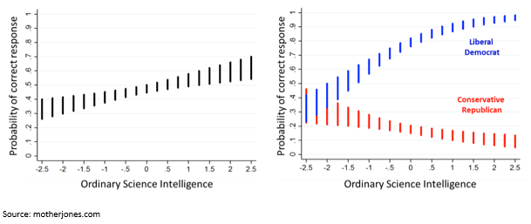 Reflecting on 2017, I think it is fair to say that in our ambition of creating a better world, we, sustainability propagators, have made some progress. Still, for most of us, this progress is far from sufficient – and the pace at which the development towards a more sustainable society takes place sometimes is a tough reality check. We all agree that sustainability is still far from the norm.
Reflecting on 2017, I think it is fair to say that in our ambition of creating a better world, we, sustainability propagators, have made some progress. Still, for most of us, this progress is far from sufficient – and the pace at which the development towards a more sustainable society takes place sometimes is a tough reality check. We all agree that sustainability is still far from the norm.
From the perspective of stimulating the transition towards sustainability, one of our priorities should be to engage other people – audiences if you will – in the sustainability agenda. More often than not, sustainability is seen as a relatively closed discourse, driven by sustainability enthusiasts, separated from other disciplines, distracting from the ‘things that really matter’ (i.e., GNP growth rates, corporate profits or any economic measure for that matter), politically-biased, and even elitist.
Sustainability discourse, in that sense, is a kind of an ‘echo chamber’.
An echo chamber, according to Wikipedia, is “a metaphorical description of a situation in which information, ideas, or beliefs are amplified or reinforced by communication and repetition inside a defined system. Inside a figurative echo chamber, official sources often go unquestioned and different or competing views are censored, disallowed, or otherwise underrepresented.”
Sustainability messages
While it may be an inconvenient truth, sustainability messages seem to particularly resound with those that are susceptible to their contents and seem to have the function of strengthening the legitimacy of the arguments of those that already belong to the converted rather than enticing the larger masses.
The good news, however, is that such echo chambers are also present with those people we want to reach. Just look at the example of the so-called climate deniers. A recent study found that blogs about climate change denial ignore science. These blogs tended to reinforce each other’s messages, refer to only a handful of studies that contradicted most scientific results on climate change, and highlighted the negative aspects of uncertainty surrounding these results.
Ordinary science intelligence
Another study, by Yale law and psychology professor Dan Kahan, showed a jaw-dropping result in this respect. Kahan asked a large group of Americans what they thought was the explanation for the earth getting warmer: mostly because of human activity such as burning fossil fuels or mostly because of natural patterns in the earth’s environment? (To be sure, you and I know that the correct answer is the former.) Plotting people’s responses to this question against what is called ‘ordinary science intelligence’, the results showed that, for the entire research population, the probability of a correct response to this question correlated strongly with (increased levels of) ordinary science intelligence.

When Kahan split up the population into a group of liberal democrats and a group of conservative republicans, however, he observed a stronger positive relationship between the variables for liberal Democrats and a negative relationship for conservative Republicans. I repeat: a negative relationship between these variables for conservative Republicans. In other words, the higher the level of ordinary science intelligence for this group, the lower the probability of a correct answer.
"Since sustainability is a value-driven topic, it is rather easy to get into a clash of values that leads people (us included) to get deeper into their own trenches."
Wow, huh? Why would people do and think like this? The answer is quite simple: because the facts do not fit their worldview. Not because they are stupid (although I would not deny that stupid conservative Republicans do exist, actually – stupid liberal Democrats, too, for that matter). What we should understand is that worldviews are ultimately built on the values people hold high and are an integral part of people’s identities. Since sustainability is a value-driven topic, it is rather easy to get into a clash of values that leads people (us included) to get deeper into their own trenches. People are attached to their worldviews since they provide a sense of security. Identity overrides knowledge. Alternative facts do exist. Worldviews are sustainability’s echo chambers.
A challenge of hope
If we really want to make sustainability mainstream, we need to connect with (the agendas of) ‘those other people’ – the people that hold a different worldview than ours. The truth of the matter is that, while it might sound rather straightforward, that’s a challenge that can hardly be underestimated. At the very least it is a challenge of empathy, a challenge of creativity, and a challenge of perseverance. And perhaps most of all, it is a challenge of hope: the hope that our reality can influence that of others. A hope that can only be founded by the idea that the reality of others can influence ours.
"Worldviews are sustainability’s echo chambers. Only through taking up this challenge will sustainability have a chance to echo through any chamber – not just ours."
However you look at it, it is a challenge that we should take up, since only through taking up this challenge will sustainability have a chance to echo through any chamber – not just ours.
How does your company deal with sustainability?



